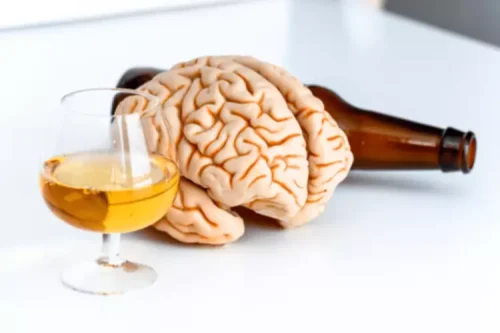Alcohol Withdrawal Timeline: Symptoms and What to Expect

Studies show support groups play an instrumental role in helping people develop healthy social networks that result in continued sobriety. For those with alcohol use disorder, withdrawal is just the first (but very important) step on a long journey to recovery. These first few weeks are critical because they are when the risk of relapse is highest.
- There are two types of alcohol withdrawal, acute withdrawal and post-acute withdrawal, also known as ‘PAWS’.
- Unstable vital signs increase the risk of complications and can be managed with medications.
- Understanding when alcohol withdrawal brain fog goes away gives you hope that helps you to maintain momentum during your recovery.
- So, pace yourself, stay committed, and keep moving forward, one step at a time.
- Years of alcohol abuse can damage this area of the brain extensively, leading to a wide variety of issues including memory loss and the inability to think rationally.
Recovery Residences

Many people with brain fog also feel fatigued — both mentally and physically. It’s almost as if there’s a layer of film in our mind that prevents our brain from working as well as it normally does. Brain fog from drinking can last for a few days after quitting, however this period of confusion and instability is only temporary. In addition to these therapies, medication and lifestyle changes can also be beneficial in addiction treatment. Medications such as Naltrexone and Acamprosate can help reduce cravings and prevent relapse, offering a powerful tool in the fight against addiction.

Speech difficulty
Her mission is to enable older adults to enjoy more independence and a better quality of life for as long as possible. Alcohol dependence happens when our brain chemistry adapts to the presence of alcohol, leading to a reliance on it to feel ‘normal’. This dependence plays a significant role alcohol brain fog in the intensity and duration of brain fog during withdrawal. The more prolonged and heavier the alcohol use, the greater the probability that the brain fog will remain for a longer time. Recovering alcoholics experience substantial and variedthinking deficits at 2 weeks into recovery.
Drugs & Supplements
However, it doesn’t address the patterns and behaviors that prompt alcohol dependency. To help you maintain sobriety, specialists employ comprehensive long-term strategies. Death and permanent brain damage are the worst-case scenarios of alcohol poisoning. Anyone who sees someone experience it must immediately seek medical attention.
One potential solution is to increase physical activity, which can help improve blood flow to the brain and promote mental clarity. Another step is to improve sleep patterns- seniors should get seven to eight hours of sleep each night, as this can help promote healing. Cognitive exercises, such as puzzles or crosswords, can also be a useful way to improve memory and mental agility. Most people who have dealt with alcohol addiction have some idea of what brain fog feels like because it is very similar to how you might feel after a round of heavy drinking.
- Withdrawal is a real possibility when cutting back or cutting out alcohol, but it can be safely managed and mitigated with the right tools.
- Susan is a deeply experienced PACE and senior care leader, having previously served as Director of PACE at Franciscan Alliance and Deputy Director at Indiana Division of Aging.
- With over 20 years of clinical experience, Dr. Golden helps people lead a healthy life well into their golden years.
- Cut yourself off from caffeine by six hours before bedtime, and drink plenty of water and other hydrating beverages.
Reach out now and join our supportive
Your habits before you came to the treatment center can also contribute to brain fog. Many people with an alcohol addiction are malnourished, and it is possible that your body does not have the nutrients it needs for proper brain functioning. Your brain fog may also be another side effect of the symptoms that accompany withdrawal. For instance, insomnia might make it hard to think well during the day. If you’re seeking a fresh start, a Greenville South Carolina rehab center can offer detox programs that effectively manage withdrawal symptoms and safely eliminate alcohol from your body. Additionally, incorporating mindfulness activities like meditation can play a role in strengthening brain circuits that may have been affected by alcohol use.
- However, the time frame can be longer for people who regularly consume heavy amounts of alcohol and then stop drinking.
- Unfortunately, as an exception to the brain’s generalrestorative abilities, people who develop wet brain don’t recover in thisway.
- Seeking professional help can be essential in managing brain fog and promoting overall well-being.
- He’s led market changing innovation across clinical, operational, and technology domains with AirStrip, McKinsey & Company, and the United States Navy.

